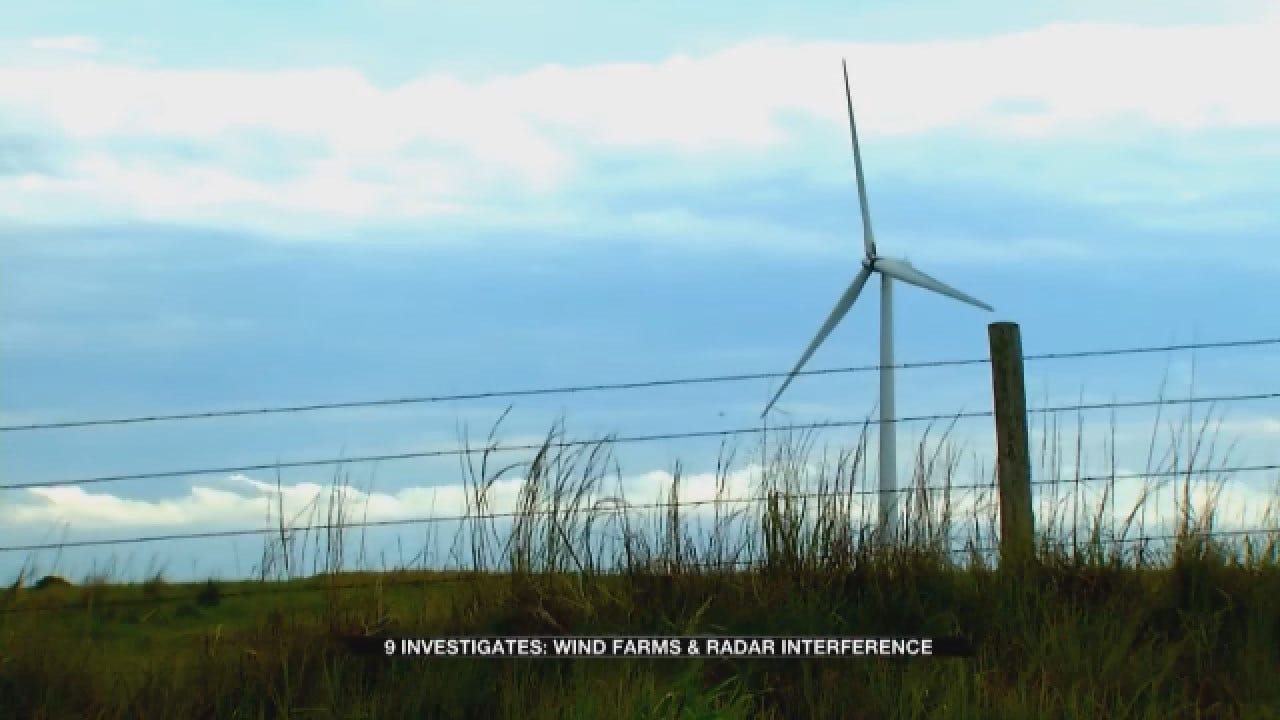9 Investigates: How Wind Farms Interfere With Weather Radars
<p>Ray Clifton has been tending the garden at his home in rural Caddo County since well before any wind turbines started going up nearby. </p>Wednesday, October 17th 2018, 10:20 pm
Ray Clifton has been tending the garden at his home in rural Caddo County since well before any wind turbines started going up nearby. And when, at first, they did come, he didn't sweat it.
"It's like most things," Clifton said in a recent interview. "You don't know what's going on at the time. It's not a big deal, it's just progress."
But Clifton's learned that progress can have consequences, like wind turbines that get in the way of accurate weather forecasts.
"Accurate forecasting is probably one of the most important things," said Clifton, "because that is a life-and-death issue."
In a state that is known around the world for the devastating impacts of tornadic winds, it may be somewhat ironic that the wind is now increasingly harnessed for beneficial purposes, producing renewable energy, creating jobs, and helping power local economies.
At the beginning of 2018, the Wind Energy Coalition reported Oklahoma had moved to No. 2 in the nation in the production of wind energy, behind only Texas.
And yet, in another ironic twist, the proliferation of wind energy appears to be adding to the risks posed by Oklahoma's erratic winds, by making it harder for meteorologists to detect them.
"The data starts to look really, really fuzzy," explained David Payne, Chief Meteorologist for News 9.
Payne said that it's a simple fact that wind turbines contaminate radar data.
Looking at a live radar image in the station's weather center, Payne points to a cluster of green and yellow dots in northwest Oklahoma: "That's not rain," the meteorologist stated, "it's clear up there."
When the skies are clear and there's no inclement weather, Payne says the wind farms don't pose a problem, because he and his colleagues know the returns they see are just the radar reflecting off the turbines. He says the problem is when there is weather, and it's moving over a wind farm.
"There are times when I'm looking at wind velocity data, at damaging winds or at an area of circulation," Payne related, "and I've gone, 'Hang on a second-- what's real and what's not?' Ya know, what's a wind turbine versus what's real data?"
Similar questions arise at the National Weather Service in Norman, where Jessica Schultz is the radar program manager. She showed us another example of wind turbines interfering with radar data.
"So here you have a thunderstorm developing, or shower developing," Schultz pointed to a screen in her office, "and here's the wind project just west of Garber."
As the shower moves to the northeast, the small storm gets lost in the wind farm.
Schultz says, as new wind projects are developed across the country, it's her job to analyze them for the potential to interfere with nearby radar.
"Our concern is those close call situations where you have a thunderstorm that's rapidly evolving, moving across the wind turbine area," Schultz explained, "when it can make it more difficult to discern what exactly is happening."
Since 2006, the National Weather Service has analyzed about 1,700 wind projects across the country. But Schultz says they don't have the legal authority to stop any of the projects from moving forward; they pass along any concerns they might have to the local communities and the project developers, and hope they listen.
Officials with the wind industry say they do listen.
"They take it very seriously," said Mark Yates, Oklahoma Director for the Wind Coalition, an industry trade association.
Yates says developers are aware of the issue and understand that the interference gets worse the closer the turbines are to the radar.
"The industry is more than willing to cooperate with the National Weather Service and NOAA," Yates said, "to make sure that these situations are mitigated, because safety is the number one concern."
Safety is also Ray Clifton's top concern - his family's safety. So he's counting on developers to keep that promise.
"Because out here," Clifton emphasized, "you really do need the tornado warnings, all you can get."
Read Related: Rep. Russell On Hinton Wind Turbine Construction
Read Related: OCC Addresses Controversial Wind Turbine Construction
Read Related: Turbine construction Continues After Cease And Desist Order
More Like This
October 17th, 2018
November 13th, 2024
October 28th, 2024













